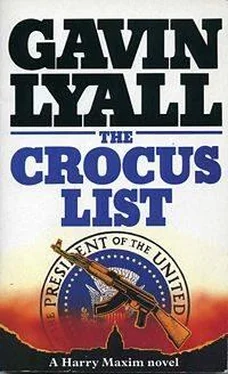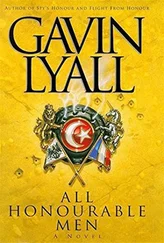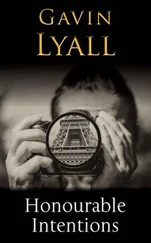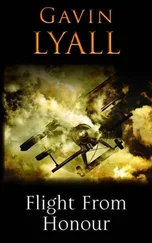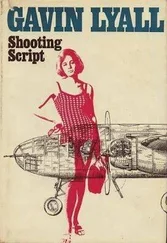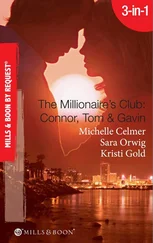"Bad luck. They all look like mad axe-men."
"I've seen some of them before. I don't know when I'll be-"
"We'll keep a mug of cocoa burning in the window for you."
When Maxim had gone, George went into his tiny study and prowled restlessly. It was something of a relief to be working with Harry again-but had he dragged the man into another smudgy episode for his 'P' file? (Never mind what the DDCR said, George automatically assumed all credit and blame.) Some other men might not have come out of it alive, there was that, but others might have paused longer before getting involved… He glanced hungrily at the phone and had to remember he was no longer at Number 10, no longer had anex officiofinger to poke into every pie… And, blast it, did he want a whisky and soda or a glass of the port?
The phone had given barely a ping before he snatched it up. It was Sprague from the Home Office, and if George had just a couple of minutes, truly no longer, then… George went to warn Annette, who loathed Sprague. But it decided one thing for him: the port.
Norman Sprague'scorrectness seemed entirely individual, as if he were obeying some Queen's Regulations for the Home Office that he alone had written and read. He was slim, unaged and with the same perfect sheen to his hair and shoes; his suit was dark, double-breasted and old-fashioned by a precise degree; he had a rosebud in his buttonhole and his tie was Old Harrovian.
"George, a little bird tells me you have a most interesting house guest. Don't keep him all to yourself, that would be too unkind. You must produce him immediately."
"He's round at the Yard, looking at mug shots. Glass of port?"
Sprague glanced intently at the decanter, then relaxed. "Of course, this is one house where one doesn't need to be tactful about the port. You keep an exquisite cellar, lucky man. I'd love a sip. Perhaps it's just as well your friend isn't here, one can be more relaxed without the rude mechanicals."
He selected the best chair- George's own-so naturally, just as he assumed that George would bring his glass across to him, that there could be no resentment. It was simply his due as oneofthatsmall and invaluable band of Whitehall old ladies, all male except (in Annette's opinion) Sprague himself, who knew almost everything and everybodyand hid most of it while seeming to babble all.
"Confusion to our enemies-" Sprague sipped. "Quite delicious-whoever they may turn out to be. George, we have a little problem after today'sévénements. My Minister is going to have to Make A Statement, and at the moment he can barely remember his own name. He wasthere, didyou realise, and the thought that his own dear skin might have been punctured has quite unmanned him. Too pitiful for words. Never mind, it keeps him out of the way while we prepare a helpful submission which he really can't get wrong, unless he reads it upside down. I thought of being 'thorough' and 'relentless', and perhaps we might even 'spare no effort'. I think he'd like that, don't you?-once he's looked up what 'effort' means."
"Had you thought of it being 'this dastardly act'?"
"How could I have missed it? Thank you, George, I knew I could rely on you. He'll love it, I can hear him saying it now-and for weeks to come. Then the PM will express Utmost Confidence-which he may even feel, God knows why-and that will be that. But not, alas, the end for us."
"A Steering Committee for the investigation?"
"Inevitable." Sprague shook his head sagely. "Not to produce anything publishable, that's been acceptedsanidemur, but just to give the PM a day-to-day picture of what's happening, which one trusts won't be."
"Who's chairing it?"
"Rodney Kirkland, we're safe there. Retired admirals add a certaingravitasand he won't understand a word of what's going on. Then most likely Tony Sladen from the Cabinet Office, some assistant commissioner from the Met, we'll have to have the D-G of Five-and the Home Office, that's to be little me. One couldn't very well dodge. But on the whole, quite cosy and, one might say, even steerable."
"Also notably lacking proper representation from Defence," George said grimly.
"George, that's what Isaid. Admiral Roddy was frightfully huffed. Where did I think he'd been all his life? Well, with sailors one would prefer not to speculate. Oh no, he'd been at Defence since the first bow and arrow, their interests perfectly safe in his hands-what could one say?"
"It's an Army matter if it's anything."
"Quite. But the Army's role in the whole affair must be a central issue. What your man's orders were, possibly whether he exceeded them-I make no judgements yet -certainly if it wasadvisable for him to fire off a high-velocity something, causing the culprit to blow himself up."
"Harry believes the man committed suicide with that grenade."
"Yes, so I understand." Sprague's expression was one of faintly pleased regret, as if he had heard that some distant and disliked cousin had lost his job. "So difficult to prove. And the precise task of your man at the Abbey-"
"He was commanding an anti-terrorist unit."
"Ah, but was he? Naturally the Committee will do its utmost to ensure that no other task is mentioned publicly, but that raises the question: if he were on anti-terrorist duties, why did he not prevent the terrorist reaching the Abbey in the first place? You see my dilemma."
George saw, all right. Also that it was no more Sprague's dilemma than Sprague thought it was. "The Army had no more than a platoon there; the Met must have had God-knows-how-many coppers around."
"No doubt. The Met-Sir William himself- must bear their due share of responsibility. Indeed, it was Sir William who took it on himself to release the news of the grenade being Russian and those telephone numbers. Not on my Office's advice, I can assure you. But another indication that we don't control the London police. They've managed very cleverly not to be under anybody's direct control for all these years. Self-made orphans: they can't choose a mother now, when they need a skirt to hide behind. I fear for Sir William, I truly do."
"And you wanted the Russian angle suppressed?"
Sprague winced. "Notsuppressed, George, of course not. But does one want such thingsbandied about before the Committee has had time to produce a definitive version of events? Surely it is the first duty of the Committee to discourage wild speculation. What, after all, does the evidence amount to? Russian weapons, easily available I believe; those telephone numbers-unlisted, as you were about to remind me, but not unascertainable -and an unidentified corpse. No hint of anyone else being involved at all. Might I beg of you just one more drop of this heavenly vintage?"
Georgegot up and refilled the glasses. "They're no further forward on the identification?"
"Not unless your colleague is picking him out of the rogues' gallery at this moment, which one doubts. Such people are unlikely to be common criminals. Thank you so much, you're too kind. Nothing on the body except that street guide, and as for fingerprints and dental records, I believe they're having trouble finding enough teeth or fingers. This is extraordinarily delectable; it wouldn't be one of the '48s, would it? Not a Taylor, surely? You lucky man, George."
"You don't think the unmarked clothes, empty pockets, that could be all of a piece with him destroying his identity by blowing his face off? To protect somebody else?"
"It is difficult," Sprague said judiciously, "to see that phrased in a Committee report. That he hid his identity, no question. But one could see that as the attitude of the lonely psychopath, a man who has sunk his identity in destroying the American President-perhaps any American President-planning meticulously through the years, collecting the wherewithal… the gun was quite an old one, they tell me; the grenade, too."
Читать дальше
